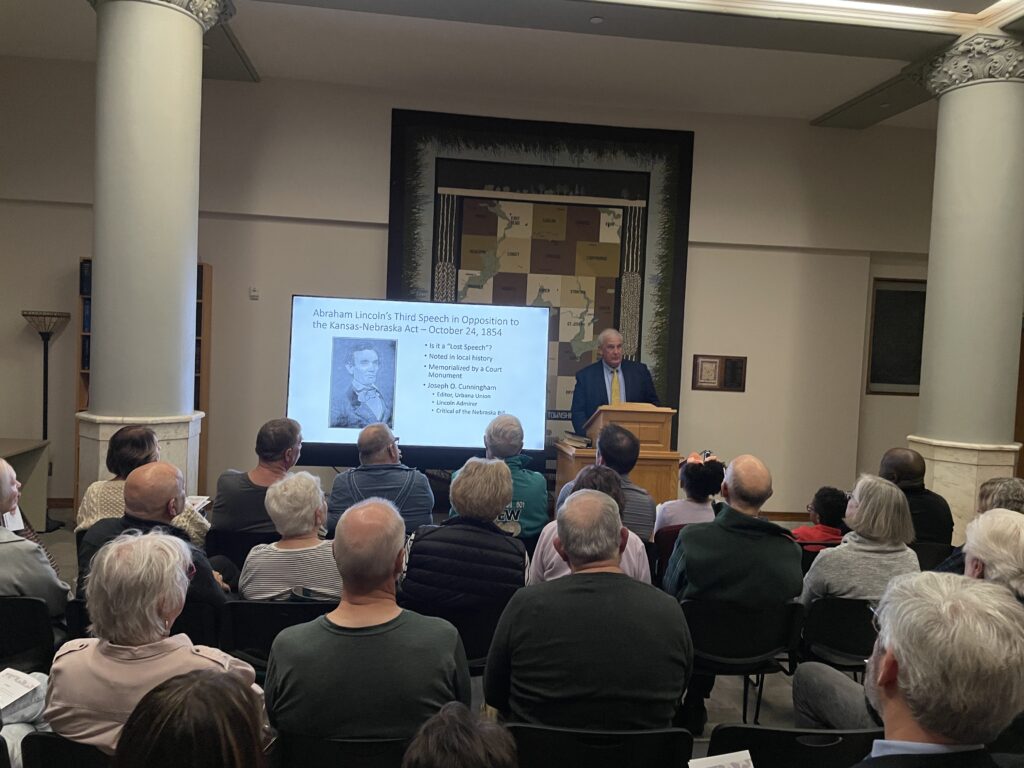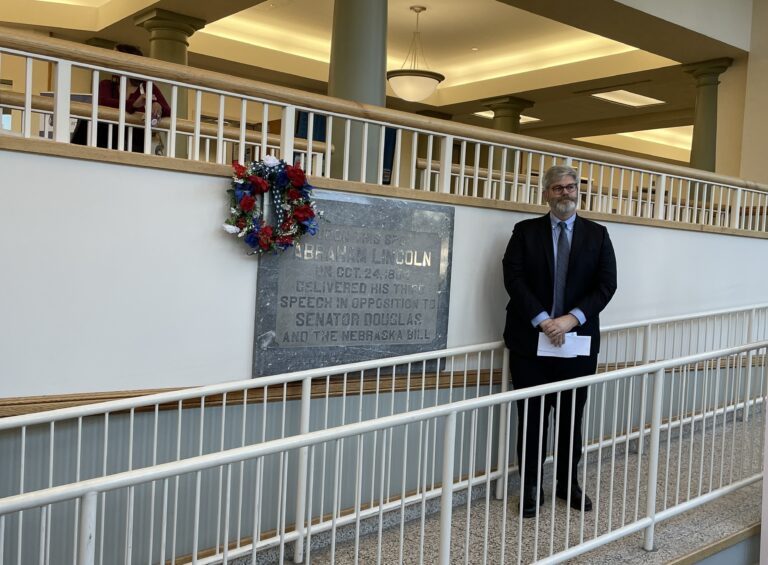Before he was elected president, Abraham Lincoln spoke in Urbana on Oct. 24, 1854, to denounce a law that allowed for the expansion of slavery.
On Thursday, one hundred and seventy years later, a commemoration was held at the Champaign County Courthouse.
Around 50 community members gathered to hear the history behind those remarks. The event included musical pieces composed during the former president’s lifetime and performed by the Olde Music Group with the Community Center for the Arts.
At the time, Lincoln was a practicing lawyer in Illinois.
He made stops in Springfield, Peoria and Urbana to speak out against the Kansas-Nebraska Act passed by Congress. That law, introduced by U.S. Senator from Illinois and Lincoln rival Stephen A. Douglas, created new territories while allowing slavery to expand in northern states.

Attorney Steve Beckett, a former Champaign County Board member and frequent speaker on Lincoln’s legacy, said the former president was an ardent critic of the institution of slavery.
Though Lincoln was not yet an abolitionist at the time, Beckett argued the speech was part of his path towards the presidency and his eventual campaign to end the practice in America.
“We must insist on the same sense of political morality that work must be done to solve the divisions that exist today,” he said.
Lincoln gave the speech before running for the U.S. Senate and making a bid for the White House.
Chad Beckett, a judge in the Sixth Judicial Circuit, described the 16th president as “a prairie lawyer” who dispensed wisdom across the state. He said the speech was an early example of Lincoln’s tradition of service for the nation.
“[It is] a measure of hope that we, even today, will overcome the obstacles that Providence may place before us, to test our resolve and to make sure that we continue to serve as the examples of freedom, of liberty, and democracy for all,” he said.
Members of the Lincoln Legacy Committee placed a wreath next to a plaque in the courthouse honoring Lincoln’s visit.

